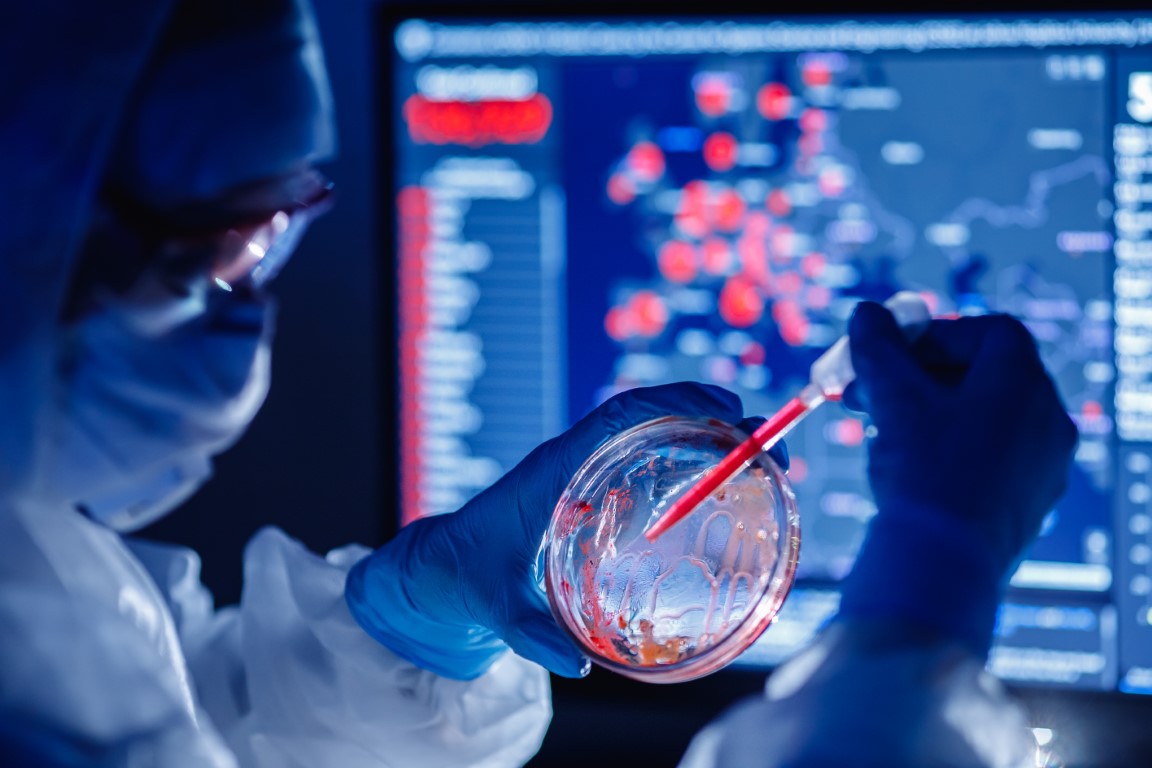Embarking on the horizon of bioengineering, recent advancements have led to groundbreaking progress in enhancing biological systems. Imagine the possibilities with gene editing breakthroughs, organoid technology advancements, synthetic biology innovations, 3D bioprinting progress, and precision medicine applications.
These developments are reshaping the landscape of healthcare and biotechnology, offering a glimpse into a future where human potential and health outcomes may be vastly different. The convergence of engineering principles with biological systems is paving the way for a new era of innovation and transformation in the field of bioengineering.
Key Takeaways
- Gene editing advances like CRISPR open new horizons in genetic manipulation.
- Organoids revolutionize disease modeling and drug testing with miniaturized organs.
- Synthetic biology offers customizable microorganisms for diverse applications.
- 3D bioprinting and tissue engineering redefine regenerative medicine possibilities.
Gene Editing Breakthroughs
In the realm of bioengineering, groundbreaking advancements in gene editing have revolutionized the way scientists manipulate and enhance genetic codes. The emergence of CRISPR applications has provided researchers with a powerful tool to precisely edit DNA sequences, opening up a myriad of possibilities in gene therapy and beyond. However, with great power comes great responsibility, as ethical implications surrounding CRISPR technology loom large. The ability to potentially alter the human germline raises concerns about the unforeseen consequences and the potential for misuse.
Gene therapy, once a distant dream, is now a tangible reality due to these advancements. The future prospects of gene editing hold promises of eradicating genetic diseases and revolutionizing personalized medicine. However, the ethical dilemmas surrounding the permanent alteration of an individual’s genetic makeup can’t be overlooked. Striking a balance between scientific progress and ethical considerations will be crucial as we navigate this uncharted territory in bioengineering.
Organoid Technology Advancements
Advancements in organoid technology have reshaped the landscape of biomedical research, propelling scientists towards a deeper understanding of complex biological systems. These miniature organs, cultivated from stem cells, mimic the structure and function of real organs, offering a platform for disease modeling that was previously unimaginable. By replicating the intricate cellular interactions seen in vivo, organoids enable researchers to study diseases with a level of detail and accuracy that traditional cell cultures can’t provide.
The ability to create organoids representing various organs such as the brain, kidney, and liver has revolutionized drug testing, personalized medicine, and the study of developmental disorders. However, challenges remain in fully replicating the complexity of human organs in these miniature models. Researchers are continuously refining techniques to enhance the maturity and functionality of organoids to make them more physiologically relevant.
As organoid technology advances, it holds the promise of transforming how we understand and treat diseases, offering a bridge between simplistic cell cultures and complex human physiology.
Synthetic Biology Innovations
The exploration of Synthetic Biology Innovations marks a bold leap into reshaping biological engineering landscapes beyond the realm of organoid technology advancements. This cutting-edge field holds immense potential for revolutionizing various sectors, particularly in biofuel production and environmental remediation.
Here are five key points to consider:
- Customizable Microorganisms: Synthetic biology allows for the design of microorganisms tailored to perform specific tasks, such as producing biofuels efficiently.
- Gene Editing Tools: Innovations like CRISPR-Cas9 enable precise genetic modifications in organisms, enhancing their capabilities for environmental cleanup.
- Novel Biocatalysts: Engineered enzymes and pathways can catalyze complex reactions, opening new possibilities for sustainable biofuel production.
- Biosensors for Monitoring: Synthetic biology offers the development of biosensors to detect pollutants in the environment, aiding remediation efforts.
- Biological Systems Integration: By intertwining biological systems with engineered components, synthetic biology can create synergistic solutions for environmental challenges.
3D Bioprinting Progress
Embark on a journey through the groundbreaking realm of Bioprinting Progress, where scientific ingenuity converges with medical innovation to redefine the boundaries of tissue engineering and regenerative medicine. In this dynamic field, researchers are pushing the limits of what’s possible, harnessing the power of 3D bioprinting to create intricate structures that mimic the complexity of human tissues.
Tissue engineering lies at the core of bioprinting progress, offering a promising avenue for the development of customized implants, organs, and tissues. By utilizing advanced bioprinting techniques, scientists can precisely control the placement of cells, biomaterials, and growth factors to fabricate functional biological constructs with unprecedented precision.
Regenerative medicine, another key focus of bioprinting progress, holds immense potential for revolutionizing healthcare. Through the integration of bioprinted tissues and organs, researchers aim to provide innovative solutions for organ failure, tissue damage, and degenerative diseases. The ability to engineer living tissues opens up new possibilities for personalized medicine and therapeutic interventions, paving the way for a future where regenerative treatments are tailored to individual patients’ needs.
Precision Medicine Applications
In the realm of bioengineering tech developments, the focus shifts towards the impactful domain of Precision Medicine Applications, where the convergence of cutting-edge technology and personalized healthcare is reshaping the landscape of medical treatment.
Personalized therapies and genomic diagnostics are at the forefront of this revolution, offering tailored solutions that cater specifically to an individual’s genetic makeup and health needs.
- Tailored Treatment Plans: Precision medicine allows for the creation of customized treatment plans based on an individual’s unique genetic profile.
- Improved Patient Outcomes: By targeting treatments based on genetic information, the efficacy of therapies is greatly enhanced, leading to better patient outcomes.
- Early Disease Detection: Genomic diagnostics enable the early detection of diseases, allowing for timely interventions and improved prognosis.
- Reduced Adverse Reactions: Personalized therapies help minimize adverse drug reactions by considering how an individual’s genes may influence their response to treatment.
- Advancements in Cancer Care: Precision medicine has significantly advanced cancer care, providing targeted therapies that are more effective and less harmful to healthy cells.
Frequently Asked Questions
How Do Ethical Considerations Play a Role in the Development of These Bioengineering Technologies?
When considering bioengineering technologies, ethical dilemmas emerge as key considerations. Society’s reaction to these advancements carries profound implications. Understanding the societal impacts is crucial to navigate the complex terrain of innovation responsibly.
What Are the Potential Long-Term Effects of Widespread Adoption of These Technologies on Human Health and the Environment?
Embrace the future cautiously. Widespread adoption of bioengineering tech can lead to unforeseen environmental impact and public health consequences. Stay vigilant, advocating for thorough research and monitoring to safeguard the long-term well-being of all.
Are There Any Regulatory Challenges or Barriers That Could Hinder the Progress of These Bioengineering Advancements?
Navigating regulatory challenges and ethical dilemmas in bioengineering requires a keen understanding of evolving standards. You must proactively address potential barriers to progress, ensuring responsible advancement and safeguarding against negative impacts on health and the environment.
How Do These Technologies Impact Healthcare Accessibility and Affordability, Especially in Developing Countries?
In developing countries, bioengineering tech can enhance healthcare access by providing affordable solutions. These advancements could revolutionize treatment options, making medical care more accessible and cost-effective. Embracing these technologies can bridge gaps in healthcare availability and affordability globally.
What Are the Implications of These Advancements on Societal Norms and Values Surrounding Human Enhancement and Genetic Modification?
When considering societal norms and values regarding human enhancement and genetic modification, one must grapple with the social implications and cultural values at play. Bioethics and moral dilemmas arise as we navigate these new frontiers.
Conclusion
You’ve just scratched the surface of the groundbreaking bioengineering advancements that are reshaping the future of medicine. From gene editing breakthroughs to 3D bioprinting progress, the possibilities are endless.
Embrace the revolution and push the boundaries of what’s possible in the realm of synthetic biology and precision medicine. The future of healthcare is being shaped by these innovative technologies, so don’t be left behind.
Stay curious, stay informed, and be part of the bioengineering revolution.

